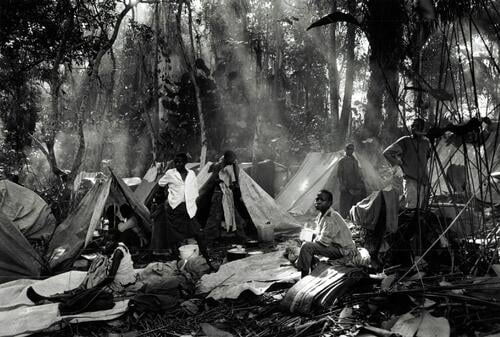Based on the speaking out case study: The Hunting and Killing of Rwandan Refugees in Zaire-Congo: 1996-1997, this course is an interactive self-study course, which includes a learning journey.
The series of MSF Speaking Out Case Studies (SOCS) learning modules emphasises and expands critical thinking and analysis skills using a two-part approach. These courses are based on MSF's speaking out dilemmas in complex humanitarian contexts.
Part one of this course is thematics-based and is focused on humanitarian access, space and speaking out. Part two investigates the case study, "The Hunting and Killing of Rwandan Refugees in Zaire-Congo: 1996-1997" and speaking out dilemmas surrounding how MSF was instrumentalised – used as refugee ‘bait.’
Key components of the case study include crimes against humanity, genocide, the ensuing population flight, the refugee crises, and an international community that abandons the population as critical features of the war, which is ongoing until today. Learners are led through a critical reflective investigation of speaking out dilemmas including case study implications, after-action analysis, and trade-offs.
The humanitarian access and space thematic includes an introduction to concepts such as:
- Tangible and intangible humanitarian space and humanitarian access including negotiated access, limits, and risks.
- The normative international framework for humanitarian access/space and the laws that protect the act of medical humanitarian aid.
- External and internal challenges to humanitarian access/space including examples from Afghanistan, Gaza, and Myanmar.
- Evolution of humanitarian space and access including a spotlight on treating 'terrorists' & counterterrorism.
The Learning Journey
What you need to know before starting the course.
How to enrol
All students - internal and external - must register on TEMBO, the MSF learning platform, in order to access courses. Click on the button below to access the platform.



